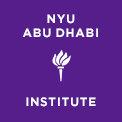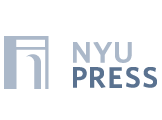
On June 19th, 2019, Marina Warner moderated a panel discussion with several of the editors of the Library of Arabic Literature at the workshop “Conceptions and Configurations of the Arabic Literary Canon,” held at the Paris Columbia Global Center and organized by Sarah bin Tyeer and Claire Gallien. The panel focused on the genesis of the Library of Arabic Literature and the ways in which the question of “the canon” in Arabic literature affected the selection of titles. Some highlights from the conversation follow:
The panel began with a discussion of the origins of the project. Philip Kennedy, General Editor, explained that the Library of Arabic Literature decided early on to use the term “literature” not in the sense of “adab” but in the sense of “anything that is written, the written heritage of a culture.” The Library of Arabic Literature, then, “seeks to be a library that is inclusive,” he added.
Marina Warner asked about the process for creating a new LAL edition and translation of a work. James Montgomery, Executive Editor, described how LAL editor-translators work with manuscripts to create new, authoritative editions. “Editing is a form of translation,” he said. Shawkat Toorawa, Executive Editor, chimed in to emphasize the collaborative nature of the LAL process, noting, “We subject every single word to review.”
Asked about how the Library of Arabic Literature has grown since its founding, Editorial Director Chip Rossetti described how the Library of Arabic Literature has expanded the ways in which it makes its books available to readers. In addition to the original bilingual hardcover editions, LAL also publishes English-only paperbacks and has just launched a new series of scholarly editions with Diwan ʿAntarah ibn Shaddād. Importantly, the Arabic editions of all LAL books are available for free download as PDFs on the LAL website.
The panel concluded with questions from the audience. One audience member asked whether the editors have sought to disseminate their practices of translation outside of LAL projects. The editors responded that they have led some translation workshops, as time permits, though not as many as they would have liked. Primarily, they said, they are hoping that LAL’s methods will spread “through osmosis, by people bringing LAL books into the classroom.”
Another audience member asked the editors how the translation experience has affected the way they teach—Philip Kennedy teaches at NYU, Shawkat Toorawa at Yale, and James Montgomery at Cambridge. James Montgomery described a translation workshop he led at Birkbeck, University of London, with Marina Warner, in which they had students produce their own translation of a poem by comparing other translations of that same poem. Comparing multiple translations, he said, was an excellent way to teach students the art of “listening to the language.”
A volume collecting all the papers at the workshop is in preparation.

